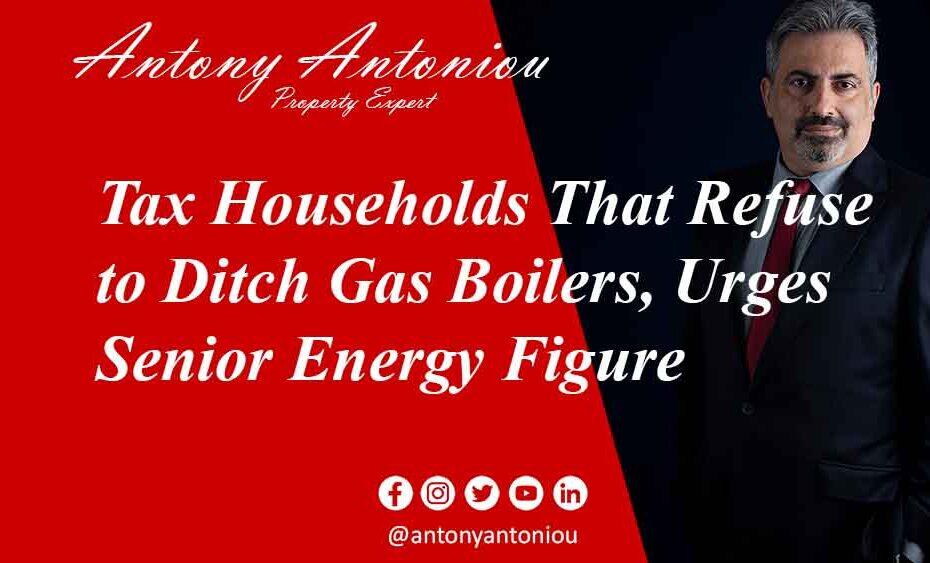Tax Households That Refuse to Ditch Gas Boilers, Urges Senior Energy Figure
Emma Fletcher of Octopus Energy Advocates for an Incentivised Transition to Heat Pumps
In a bold move towards environmental sustainability, Emma Fletcher, a key figure at Octopus Energy, has proposed the taxation of households that resist the removal of gas boilers. In her vision for a greener future, she asserts that clinging to outdated heating technology should be deemed socially unacceptable, urging homeowners to transition to heat pumps. In this blog post, we explore Emma Fletcher’s innovative approach to incentivising households to embrace change and meet the government’s net-zero targets.
The Push for Net Zero
The UK government has set ambitious targets for achieving net-zero emissions by 2050. A crucial part of this strategy involves phasing out gas boilers in homes. The plan is for households to transition to more sustainable heating options as gas boilers break down after 2035. This shift aligns with the government’s commitment to reduce carbon emissions and tackle climate change. However, the reality on the ground falls short of expectations, with only a fraction of homes adopting heat pumps, the preferred alternative.
The “Carrot and Stick” Approach
Emma Fletcher recognises that a mere request for households to make this transition won’t suffice. She advocates for a “carrot and stick” approach. In her vision, households that refuse to embrace heat pumps may face additional taxes, creating a financial incentive for change. The government has expressed its goal of achieving 600,000 heat pump installations annually starting in 2028. However, current installations remain at just a fraction of this number.
Fletcher suggests imposing a monthly charge of £5 on households in higher tax bands who have not made the switch by 2035, particularly in areas where councils have declared a climate emergency. This money would be redirected to aid low-income households in their transition to heat pumps.
A Social Shift: Making Gas Boilers Unacceptable
Octopus Energy has thrown its support behind heat pumps as the preferred alternative to gas and oil boilers. Still, the general public’s perception of heat pumps remains a significant obstacle. Concerns range from noise issues to doubts about their ability to provide adequate warmth in older homes. Heat pumps work by extracting warmth from the air or ground, heating water for radiators at a lower but more consistent temperature than traditional gas boilers. To function optimally, they may require additional insulation or larger radiators.
Emma Fletcher believes that gas boilers must become socially unacceptable, a change as culturally ingrained as adhering to bin collection schedules. Just as homes leaving their wheelie bins out for too long are met with disapproval, Fletcher argues that similar societal pressures and unwritten rules can expedite the transition to heat pumps.
Government Interventions: Free Heat Pumps and Grants
Emma Fletcher’s proposal aligns with the sentiments of Sir John Armitt, the chairman of the National Infrastructure Commission. Armitt suggests that the government should provide free heat pumps to a third of all households and offer £7,000 grants, along with zero-interest loans, to facilitate the transition for all other homeowners. He expresses concern that the government’s current strategy is falling short of meeting net-zero goals.
Currently, the government offers grants of £7,500 to households seeking to install heat pumps. However, this assistance is only available to approximately 20,000 homes per year until 2028.
Taking Steps Towards a Sustainable Future
Emma Fletcher’s vision for taxing households that refuse to ditch gas boilers is an innovative approach to pushing the UK towards net-zero emissions by 2050. As the government and environmental advocates strive to create a greener future, the transition to heat pumps represents a pivotal step. Whether through tax incentives, grants, or societal pressure, the shift away from gas boilers is essential for a more sustainable, eco-friendly future.
While acknowledging that heat pumps may not be the universal solution for every home, Fletcher underscores the importance of transitioning towards sustainable alternatives and working towards a greener, more environmentally conscious way of living.
Comment:
This is the very mindset that we need to fight against, if Heat Pumps were indeed a better option, people would naturally change over to them, but the fact that people need pressuring or indeed punishing for not installing one of those useless contraptions should be clear that they are not fit for purpose and will invariably leave millions of homeowners out of pocket, as well as living in cold homes.

